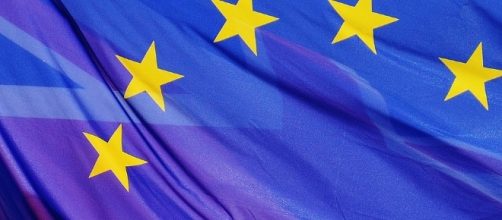Theresa May has rejected Nicola Sturgeon's bid for a second referendum on Scottish independence.
The Prime Minister accused Scotland's First Minister of distracting the British Government from upcoming Brexit negotiations.
Her comments contradict the nationalist's plans to legislate for a spring 2019 vote on Scotland's future in the UK.
Sturgeon said at a press conference on Monday that her country's future in the UK has become uncertain because of Brexit.
She added that a second vote on separation was necessary.
61% of Scottish voters that participated in last year's EU Referendum chose for the UK to remain a member of the superbloc.
This has led to the SNP's claims that Scotland is being 'dragged out of the EU' against its will.
'Unfair'
But the Prime Minister has refused to hold discussions with the First Minister on a second independence vote whilst bracing for Brexit.
She said it is 'unfair' to request that Scots decide what their future relationship with the rest of the British Isles should look like when the consequences of separation are unclear.
Yet the Tory's intervention is likely to increase the hostility between the two leaders since trading insults this week.
The nationalist attacked the Conservative Government for not listening to the Scottish Government's Brexit demands before May triggers Article 50.
However, the Tory hit back, saying that her intentions are to get the best deal for Scotland.
'Now is not the time'
She added: 'Now is not the time for a second vote.'
But Sturgeon said that the Tories were 'denying the Scottish people's right to decide when Brexit becomes clearer.'
The Secretary of State for Scotland, David Mundall, reiterated his leader's comments.
He said his department will not entertain the idea of negotiations on an independence vote.
SNP divisions
This comes amid a row between the SNP leader and her predecessor over the consequences of a Scottish exit from the UK.
Former first minister Alex Salmond said on LBC that an independent Scotland would not automatically remain a member of the EU.
The Gordon MP said that his boss's position is to retain his country's membership of the EU's Single Market by reapplying to join the European Economic Area (EEA).
The EEA includes Iceland, Norway and Lichtenstein, who are not EU members.
Compared to our current EU membership, joining the EEA would allow Scotland to negotiate its own trade deals with the rest of the world whilst remaining a member of the EU's Single Market.
It would also allow Scotland a seat on the EEA Council to vote which EU rules they wish to accept and an end to the Common Agricultural and Common Fisheries Policies.
The leaders of the EEA countries said this week that an independent Scotland will not immediately join the EEA or the European Free Trade Association, which includes all the EEA countries and Switzerland.
Scottish Conservative leader Ruth Davidson attacked the plans, saying there is no point in holding a second vote 'if the plan is to not go back into the EU.'
An SNP spokesman denied the claims.
The SNP leader will prepare legislation before the Scottish Parliament on a second referendum regardless of the Tory leader's refusal to hold one.

